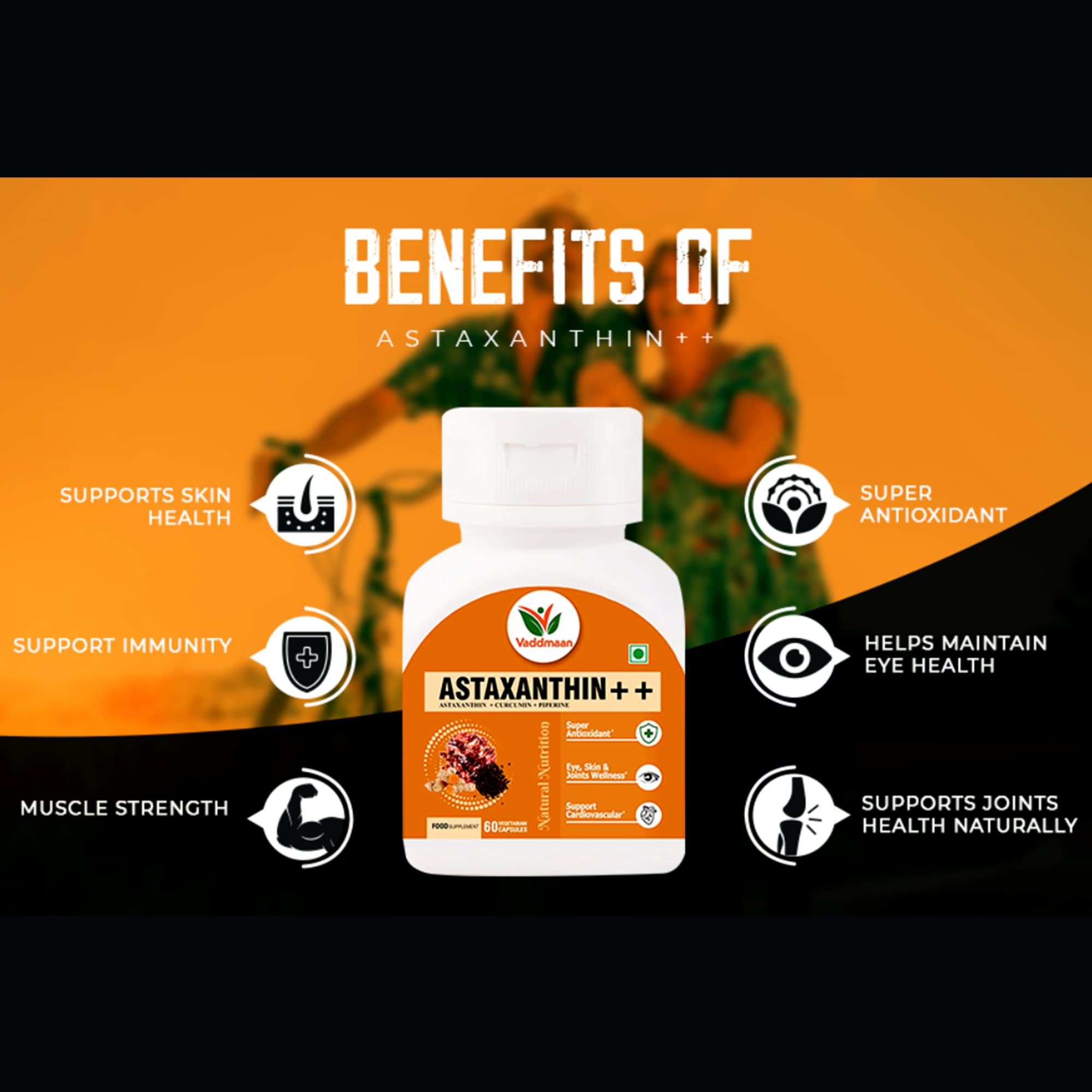Health Benefits of Astaxanthin
Astaxanthin is a powerful antioxidant that belongs to the carotenoid family. It is responsible for the red color of many marine organisms, such as salmon, shrimp, and lobster. In recent years, astaxanthin has gained significant attention due to its numerous health benefits. In this article, we will explore the various ways in which astaxanthin can improve your health and well-being.
Anti-Inflammatory Properties
Astaxanthin has been found to possess potent anti-inflammatory properties. Chronic inflammation is known to contribute to the development of various diseases, including heart disease, diabetes, and certain types of cancer. By reducing inflammation, astaxanthin may help lower the risk of these conditions.
Powerful Antioxidant
Astaxanthin is one of the most powerful antioxidants known to man. It is significantly more potent than other antioxidants like vitamin C, vitamin E, and beta-carotene. Antioxidants help protect the body against oxidative stress, which can damage cells and contribute to aging and disease. By neutralizing harmful free radicals, astaxanthin helps maintain cellular health and reduce the risk of chronic conditions.
Eye Health
Astaxanthin has been shown to benefit eye health in several ways. It can help reduce eye fatigue and improve visual acuity, making it particularly beneficial for individuals who spend long hours in front of screens or have age-related vision problems. Additionally, astaxanthin may help protect against age-related macular degeneration, a leading cause of vision loss in older adults.
Skin Health
Astaxanthin has been found to have positive effects on skin health. It can help protect the skin from UV damage, reduce the appearance of wrinkles and fine lines, and improve skin elasticity. Additionally, astaxanthin may help alleviate symptoms of certain skin conditions, such as eczema and acne.
Cardiovascular Health
Astaxanthin has been shown to have beneficial effects on cardiovascular health. It can help reduce oxidative stress, lower blood pressure, and improve blood lipid profiles. These effects may help reduce the risk of heart disease and stroke.
Exercise Performance
Astaxanthin has been studied for its potential benefits in improving exercise performance. It has been shown to enhance endurance, increase muscle strength, and reduce muscle damage and inflammation. These effects may be attributed to its antioxidant and anti-inflammatory properties.

Astaxanthin is a powerful antioxidant with numerous health benefits. From its anti-inflammatory properties to its positive effects on eye health, skin health, cardiovascular health, and exercise performance, astaxanthin offers a wide range of advantages for overall well-being. Consider incorporating astaxanthin-rich foods, such as salmon, shrimp, and lobster, into your diet, or, talk to your healthcare provider about astaxanthin supplements to reap the potential benefits of this remarkable compound.
Frequently Asked Questions
1. What is astaxanthin?
Astaxanthin is a naturally occurring pigment that belongs to the carotenoid family. It is commonly found in marine organisms, such as algae, shrimp, and salmon.
2. What are the health benefits of astaxanthin?
Astaxanthin has numerous health benefits, including antioxidant properties, anti-inflammatory effects, improved skin health, enhanced eye health, cardiovascular support, and immune system modulation.
3. How does astaxanthin act as an antioxidant?
Astaxanthin has a unique molecular structure that allows it to neutralize free radicals and protect cells from oxidative damage. It is considered to be a more potent antioxidant compared to other carotenoids.
4. Can astaxanthin help with joint pain and inflammation?
Yes, astaxanthin has been shown to have anti-inflammatory properties that may help reduce joint pain and inflammation. It can inhibit certain inflammatory markers and enzymes in the body.
5. Does astaxanthin improve skin health?
Astaxanthin can improve skin health by reducing oxidative stress, protecting against UV damage, enhancing skin elasticity, and reducing the appearance of wrinkles and age spots.
6. Can astaxanthin benefit eye health?
Astaxanthin is known to cross the blood-retinal barrier and accumulate in the eyes. It has been shown to protect against age-related macular degeneration, cataracts, and eye fatigue.
7. How does astaxanthin support cardiovascular health?
Astaxanthin can help support cardiovascular health by reducing oxidative stress and inflammation, improving blood lipid profiles, enhancing blood flow, and reducing the risk of blood clots.
8. Does astaxanthin boost the immune system?
Astaxanthin has immune-modulating effects, meaning it can help regulate and enhance immune system functions. It has been shown to increase the production of certain immune cells and improve immune response.
9. Is astaxanthin safe to consume?
Astaxanthin is generally considered safe for consumption when taken in recommended doses. However, it is always advisable to consult with a healthcare professional before starting any new dietary supplement.
10. How can I incorporate astaxanthin into my diet?
Astaxanthin can be consumed through dietary sources like salmon, shrimp, lobster, and krill oil. It is also available as a dietary supplement in the form of capsules or soft gels.




